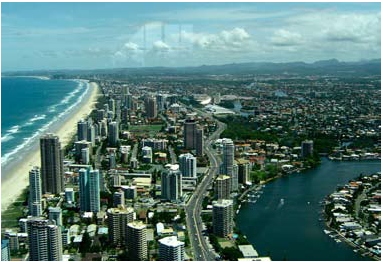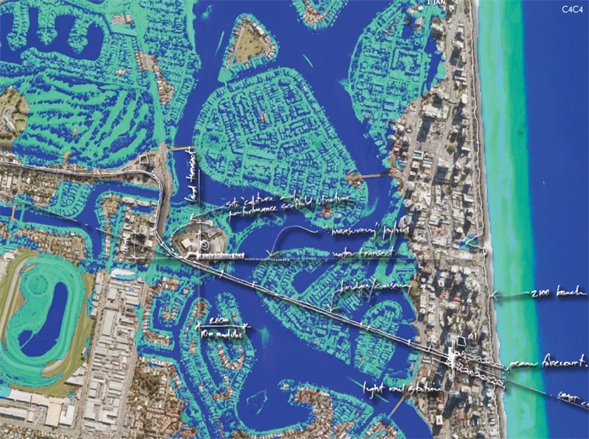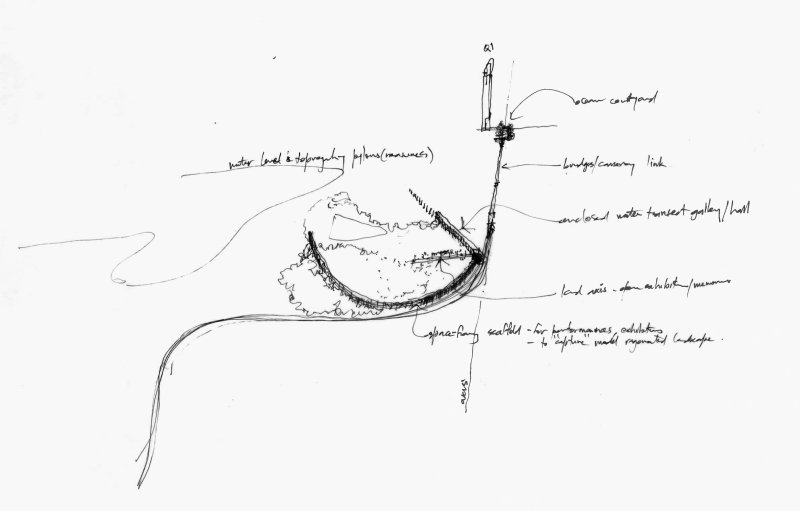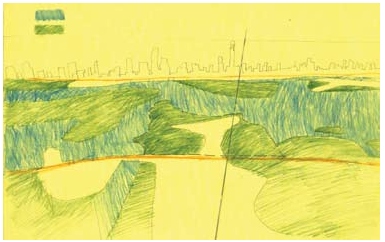Gold Coast Cultural and Civic Precinct Master Plan Ideas Competition 2009
'Gold Coast 2' - Supplementary Award Winners for a collaborative submission with Gall & Medek Architects and Professor Tony Fry and the Griffith University Queensland College of Art Master of Design Futures Program.
The competition brief was to develop ideas for a master plan of the existing cultural and civic centre site at Evandale, a central Gold Coast location surrounded by the river. Instead of providing a neat master planned solution to the existing site, our submission addressed the competition brief with a more radical approach with the reconceptualisation of the Gold Coast from 2050 into the future. We believed it more appropriate, responsible and constructive for the Gold Coast City Council to abandon the focus on redesign of existing sites and rather redirect their efforts toward actions to secure a viable future for the whole region. We advocated a proactive long term 'city move' approach rather than reactive short term solutions.
We began with the premise that the current and future threats imminent for coastal cities such as the Gold Coast, stretched thinly along low lying topography, require immediate and appropriate response. We proposed that the (existing) Gold Coast 1 was a city under threat and was in need of change, and that in order to have a viable future, the way we site, develop and live in cities had to be transcended. Gold Coast 2 would be a city which had explored and realised sustainable options which cast the city into a position of global leadership. This includes that most of the city has to move, its economy restructured and new imaginings for Gold Coast 2. We identified the process as long term requiring a creative planning process and community engagement as spanning over several generations.
We developed concepts for a satellite city to which new industries such as house boat construction, urban food production and fish farming would be established. Over time, a gradual retreat would take place from the old to the new, while the new industries are established. While the old is destroyed gradually, it remains as a strong symbolic dimension wherein the memory and story of the rise and transformation of the Gold Coast could be told. The Gold Coast archipelago, a sheltered floating suburb, would house floating homes which are plugged into service conduits. This type of dwelling forms the major focus of the research and development process which would underpin the establishment of a major new industry.
Woven into these elements are a number of economic and cultural drivers, eg: the Multiversity and the Inter-cultural Resort. The Inter-cultural resort is aimed at showing an emergent global post-national culture that would be essential in avoiding the conflict that the unsettlement from climate change could create. It would do this by showing positive cultural futures as pleasurable experiences, new knowledge, entertainment and adventure. It would export this content and message locally and to the world.
The Multiversity would generate trade on the knowledge developed to make the 'city move, new economy, new culture' experience, together with creating the knowledge needed to live, work and survive in a world with changed climate conditions.
After we were awarded supplementary winners, we presented this submission to students, academics and government/council representatives at a public talk at Griffith University QCA. The public talk was recorded and the story and interviews were aired on Antony Funnell's ABC Radio National Future Tense program 'Climate change and our coast'. (Link to podcast http://www.abc.net.au/rn/futuretense/stories/2009/2741099.htm )




